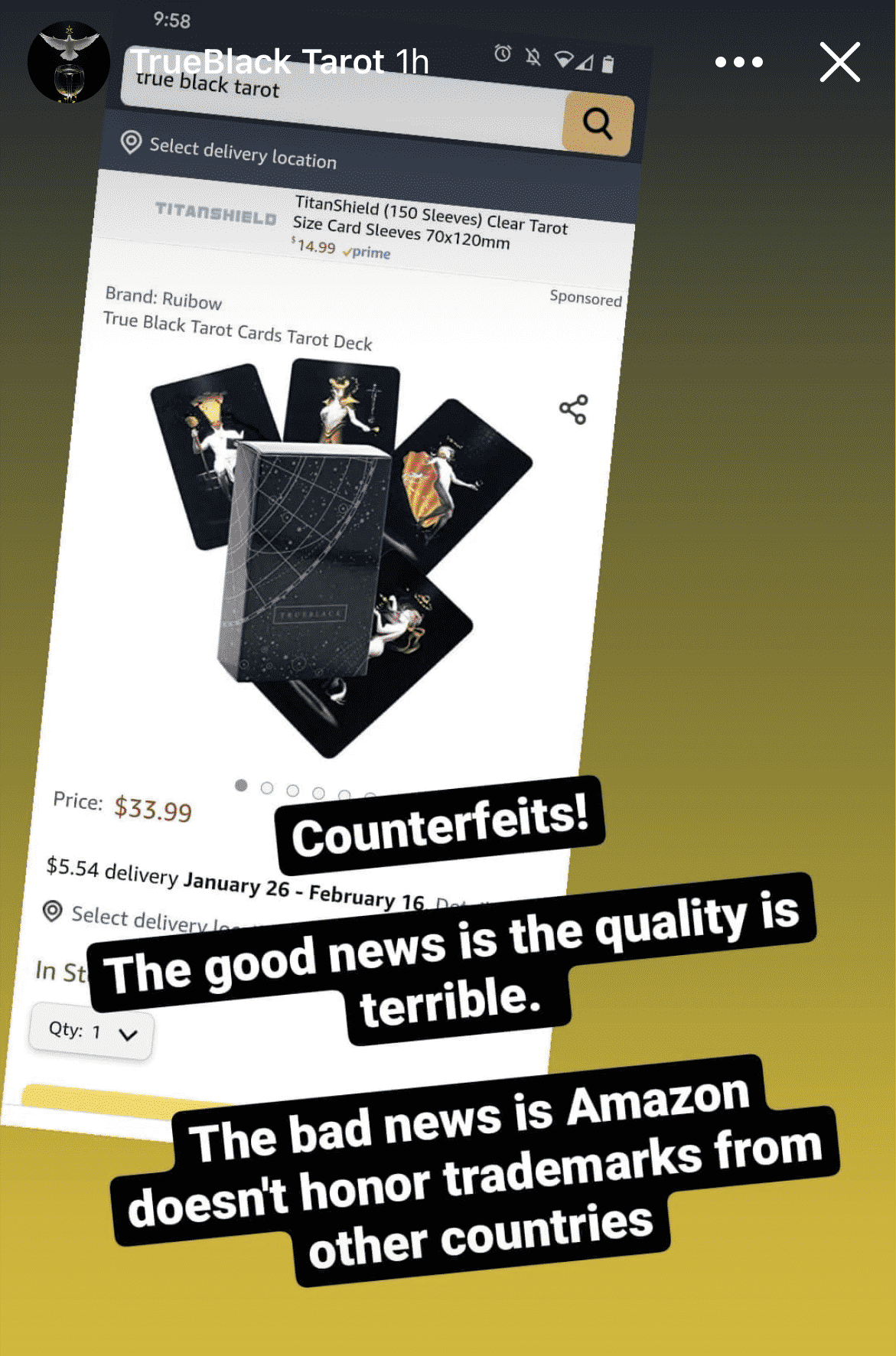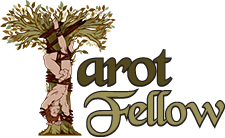BUYER BEWARE
Sites like Ebay, Etsy, and Amazon Marketplace are flooded with pirated Tarot decks
Imagine it: You’re shopping for your new favorite Tarot deck, and come across a site like Etsy, Amazon, Wish, AliExpress, or eBay offering your deck for more than 50% off the retail price. You might assume this deck is used, open, or damaged – but upon further inspection, find the deck listed in “new” condition. Excitedly, you purchase, only to have the deck arrive without a guidebook, with poorly cut or cropped images, or with missing cards.
This is becoming a common occurrence.
Amazon reviews of cheap, 6 dollar Rider Waite decks are full of complaints. While it’s true that Pamela Coleman Smith’s Rider Waite imagery is now part of the public domain, the official US Games deck has copyrights on the card back design, the box, and the guidebook. Counterfeiters may steal these copyrighted portions, or add their own card backs, boxes, and forgo including the book.
Frankly, you’d be better off printing a Rider Waite deck yourself.
The scams don’t stop there. I’m a member of many Tarot focused groups. One recent post in The Witch Den for Men tells the tale of a member purchasing the Witches Tarot by Ellen Dugan from eBay. When it arrived, the box included a QR code to retrieve the guidebook. When the QR code didn’t work, this member contacted Ellen Dugan on her Facebook page, only to be informed that the deck was pirated.
Content creators across the globe are being targeted for their intellectual property. Instagram accounts and being cloned, decks are being stolen and reprinted, and social media networks and marketplaces are playing host to these scams.

Arthur Wang, creator of True Black Tarot, recently took to social media to expose counterfeit copies of his deck.
Let’s specifically talk Esty for a moment. Many people have asked why I don’t have an Etsy shop, and load my Tarot inventory there as well. The answer is found in the Etsy terms of service, which prohibits reselling. All content on Etsy is supposed to be handmade, vintage, or a craft item. Even creatively repackaging a Tarot deck that is still in print is against their terms of service, and yet many shops offer mass distributed Tarot decks. Some of these decks may be legitimate (although, again, these decks are against the Etsy terms of service), while others get around the “handmade” rule by printing the decks themselves, violating copyright laws and denying artists and creators their royalties.
Here at Tarot Fellow, we only purchase from publishers and distributors like Hay House, Llewellyn, and US Games.
To avoid counterfeit decks, I would never purchase from an Etsy seller who is either counterfeiting decks or knowingly violating the Etsy terms of service. When purchasing from Amazon, watch which seller you are purchasing from. When purchasing on eBay, investigate the deck you are buying closely to ensure it’s authentic. Many deck creators have posted videos on how to tell whether their decks have been pirated.
How to Determine if a Deck is Counterfeit
- Does the deck come with the original box and guidebook?
- If the box includes a QR code to download the guide book, it’s most likely counterfeit, although a few deck creators do legitimately do this. Check with the publisher if the deck doesn’t include a guidebook, and if it’s supposed to, don’t purchase. Have a question about this? I’d be happy to figure this out for you.
- Read the reviews. Are other buyers complaining about bad coloring, improper card-stock, cut or other print errors?
- Do the cards have the correct back image or pattern?
- If the deck is published by an Indie deck creator (self-published and not mass distributed), only buy from their website.

